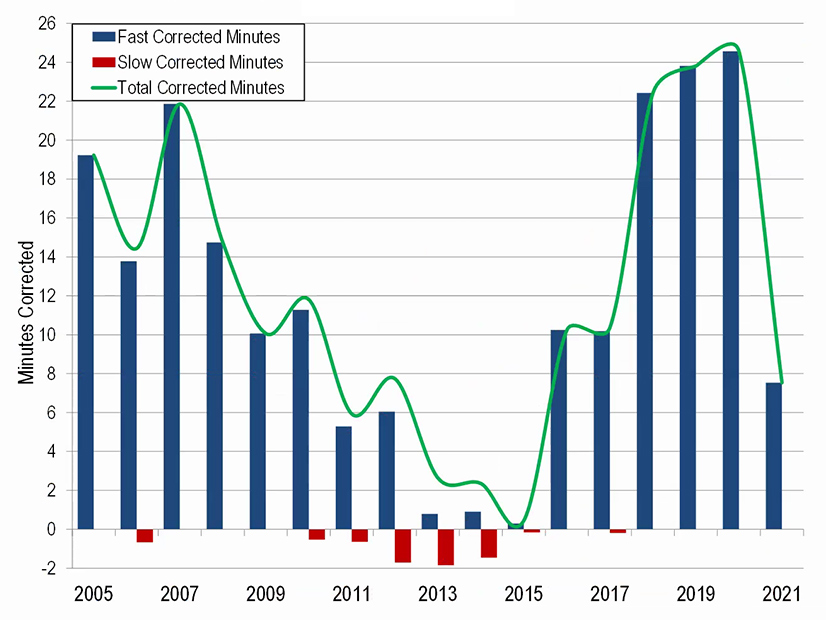It’s a mystery that has stumped the Electric Reliability Organization’s brightest minds: Why is the Eastern Interconnection regularly seeing 200 MW of excess generation an hour?
The anomaly has been observed since about 2016, Resources Subcommittee Greg Park told the Real-Time Operating Subcommittee on Wednesday. It appeared to disappear in 2017, Park said, “but then in 2018, ’19 and ’20, we saw a continuation.”
“It’s in every hour of every day. It’s a pretty consistent amount,” said ISO-NE’s Bill Henson, who said the issue, which increases system frequency, causes the interconnection to make fast-time error corrections about every three days.
Henson said there are occasional pauses, including one at the beginning of 2021 for a few days. “It looks as though it might be a single entity, or a few coordinated entities, because the pauses and starts [happen] quite suddenly. It’s as though something kicks in and the time error stops accumulating for a short while. And then whatever kicked in kicks back out and the time error then again starts.
“We don’t know if the pauses are caused by these entities doing the correct thing or if perhaps it’s actually the converse. Maybe they do the incorrect thing for a short while. And maybe perhaps this has something to do with most of the [balancing authorities] in the Eastern Interconnection having a tendency to overgenerate. The analogy that I say is that folks like to fly the airplane a little too high as opposed to a little bit too low.”
The Resources Subcommittee held a webinar on the issue in March that produced no answers but an agreement on a potential response. “The overall consensus of that meeting is we’ve really got to start looking at dynamic transfers between the large BAs,” Park said. “Because of the magnitude and duration of the overgeneration, it’s felt that it has to be a fairly large entity for it not to be recognized in this time frame.
“It may be one entity or a combination of two large entities,” he added. “It’s definitely not going to be a small BA that’s driving this. They would have been bankrupt by now with this much overgeneration.”
“It’s not what I would call a reliability issue, but it does indicate that there’s something wrong somewhere that we should try and figure out,” Henson added.






